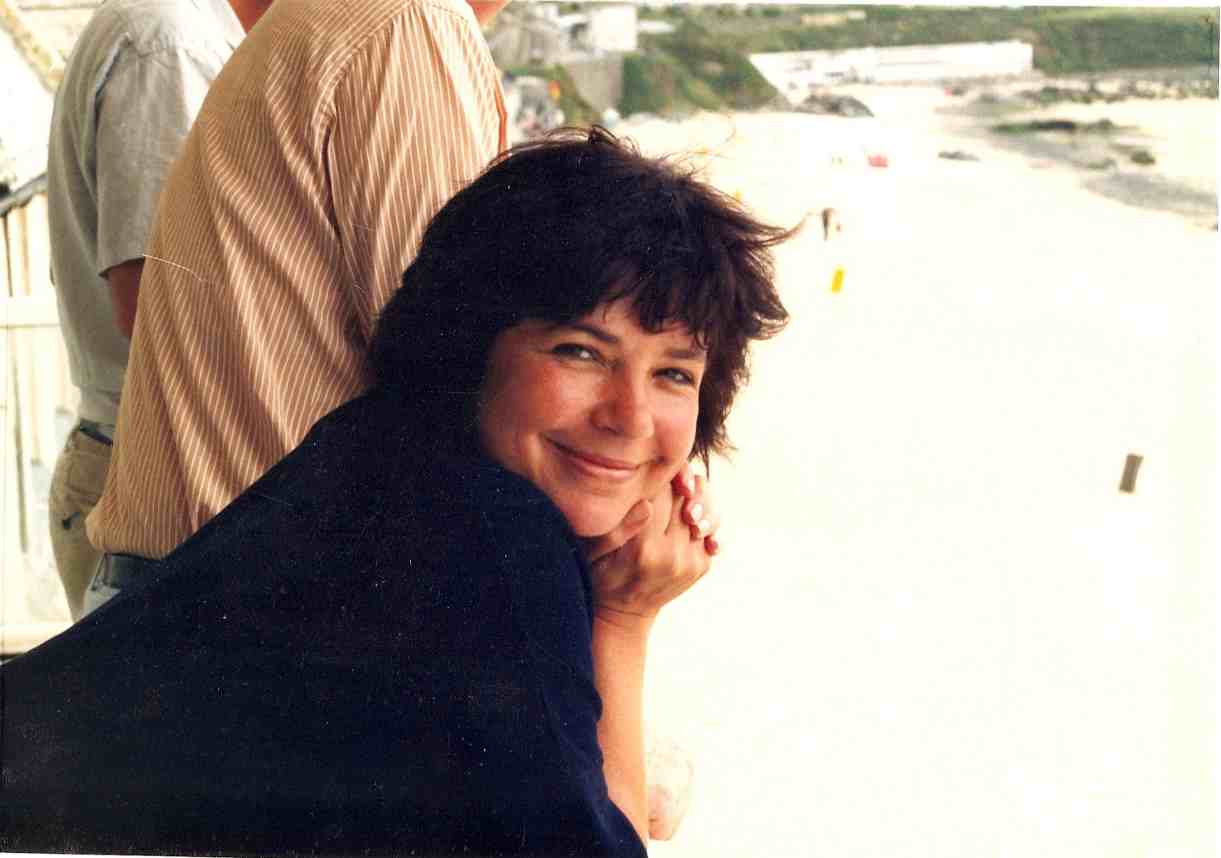Rose Foot: ‘Children's TV presenter, housing campaigner and my devoted mother'
Thursday, 10th April 2014 — By Tom Foot

Published: 10 April, 2014
by TOM FOOT
ROSE Foot – researcher, BBC children’s TV presenter, housing activist and my devoted mother – died on March 22. She was 68.
She lived in Canfield Gardens, West Hampstead, for almost 50 years, many of which with my father, the journalist Paul Foot.
Her life began in Moshi, Tanganyika (now Tanzania), in Africa, in a family home at the foot of Mount Kilimanjaro.
After being dispatched to Kingston Bagpuize, Oxfordshire, for her education she came to Camden in 1963. Her first flat was
in Leverton Street, Kentish Town, which she shared with the daughter of the Marxist historian Christopher Hill, Fanny.
She got her first break in the media in the mid 1960s on the Sunday Telegraph, working with journalists Peter Utley, Peregrine Worsthorne, Douglas Brown and Hugh Massingham, later writing herself for the Mandrake column.
The Telegraph, bizarrely, given my father’s hardly concealed politics, was where she met Paul. But Diana Miller, her lifelong friend, recalled how before that she had hooked up with a mystery “stuntman” – a secret boyfriend who she lived with unknown to her family in a flat in Frognal, off Finchley Road.
Between 1969-1973, she became the face of BBC children’s TV, presenting the flagship Watch With Mother show, and later coming a close second to Lesley Judd in an interview for a Blue Peter presenter’s job.
Rose worked for the Africa Bureau activist archive, helped compile Private Eye magazine’s Index and later with Diana set up a company based in Tufnell Park called the Research Register, which found researchers for the BBC.
She also worked as a researcher and produced books with children’s book illustrators, like John Burningham and Helen Oxenbury, who gave up their Hampstead home for the wake after her funeral on Thursday.
More than 100 people attended the funeral at Golders Green Crematorium, including the Meg and Mog illustrator Jan Pienkowski, Tariq Ali, Richard Ingrams, Ben Nicholson and Barbara Hepworth’s daughters and many, many others – in particular the group of Fitzjohn’s Primary School mothers who kept in contact after I left there, meeting each month for dinner.
In the final few years of her life she devoted her time to protecting the future of the Fairhazel Housing Cooperative.
In the mid-1970s, she had been one of the co-founders of a group that secured a huge loan from the Government and took control of around 150 private flats that had been left to ruin, running them as low-rent social housing.
From 2010, as chairwoman of the Co-op, she managed very complex legal matters and liaised with Government departments to renew the expiring freeholds to those red-brick blocks, and in turn secure the project’s future.
John Fitz, another one of founders of the Co-op, told the service: “Rose’s engagement with the Fairhazel was more than just protecting her own patch. She saw the Co-op representing something larger and worth preserving; namely affordable accommodation for those on modest and – or uncertain – incomes.
“Key workers, resting actors and retirees all need their place in the sun. As we all know, in central London all that is becoming an increasingly scarce resource.”
I think she taught me that the mark of a person is not their career or what might be considered their achievements, but how you connected with other people and tried to improve the lives of those less fortunate than you. “That can be our only great and good purpose,” as my great uncle Michael, the former leader of the Labour Party, used to say.
I will miss the long Sunday walks around the Heath, the short loop up to Golders Hill Park café, and around the Cornish coast where we used to go each year. It is unsettling to climb the five floors to her flat and not find the kitchen table strewn with inimitable delicacies.
Lastly, a perhaps cliched special thanks from our family to the nursing team at UCH, who looked after her for five weeks.
They are by far the most impressive people I have come across in a long time. I am told her treatment on the NHS over the last year would, in the United States, have left us with a bill of well over £250,000.
It was no surprise to see her on the last march to save the Whittington Hospital, despite her chemotherapy.
She leaves behind myself and my step-brothers John, 49, and Matt Foot, 47, who she helped to raise, and who, I know, are sharing equally my sense of loss.